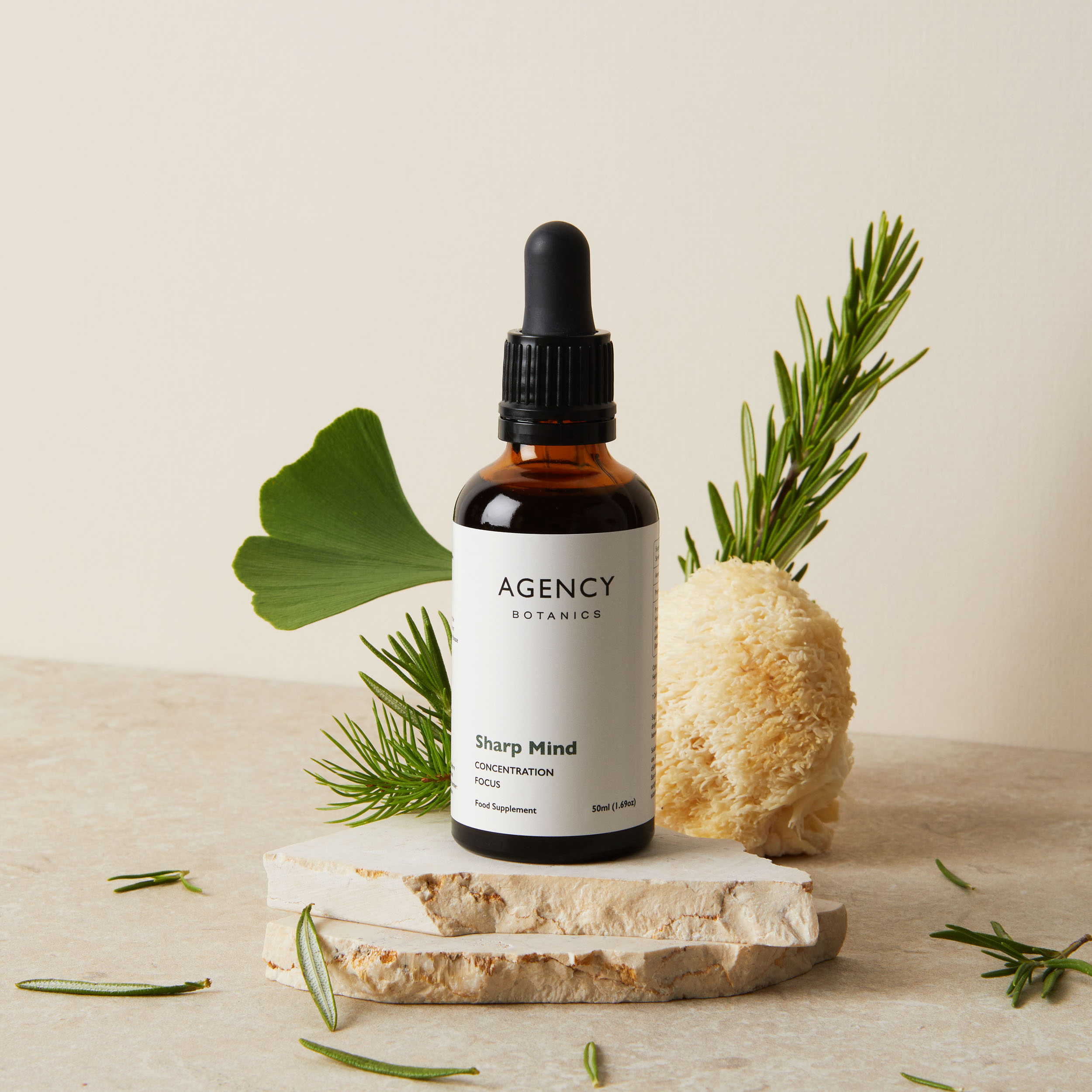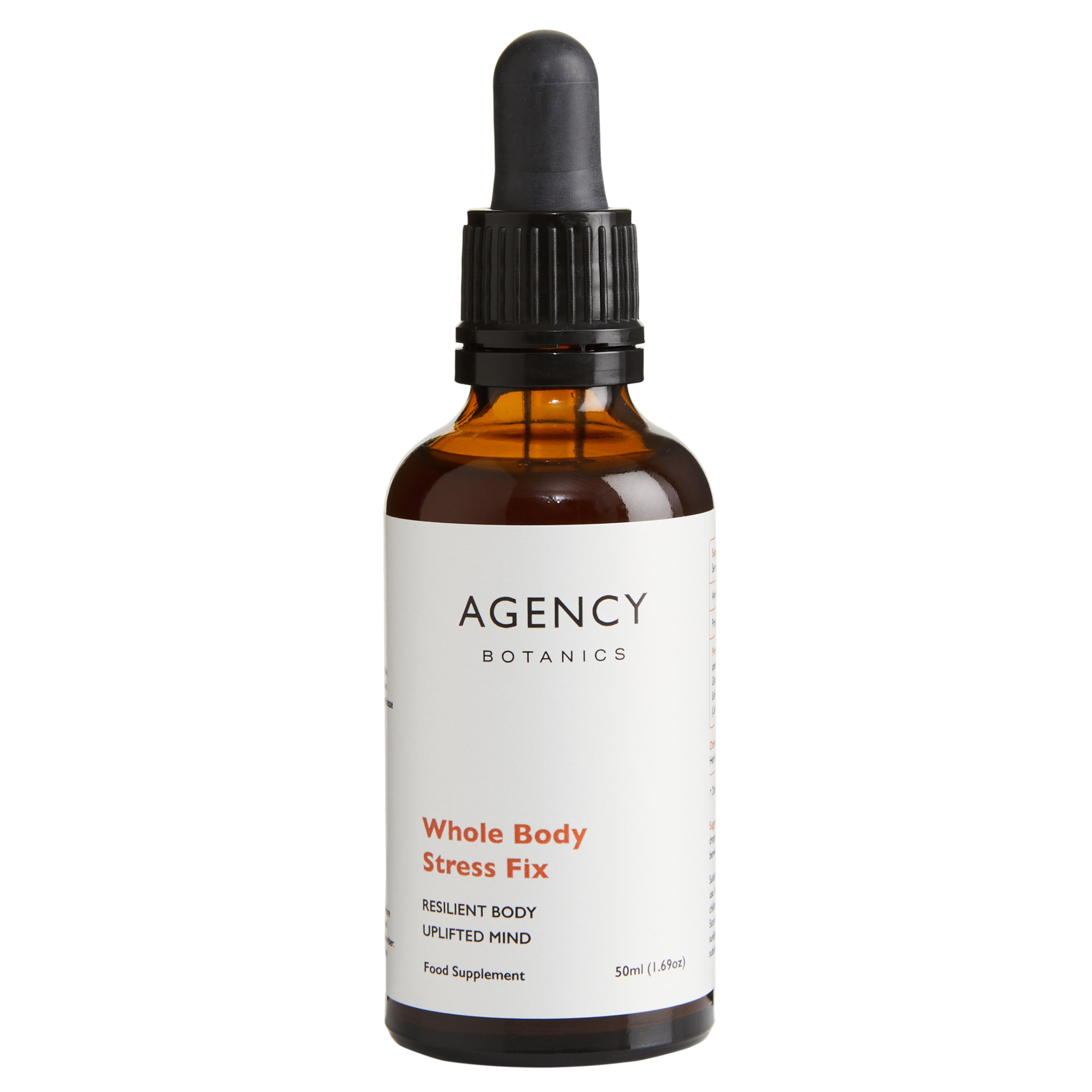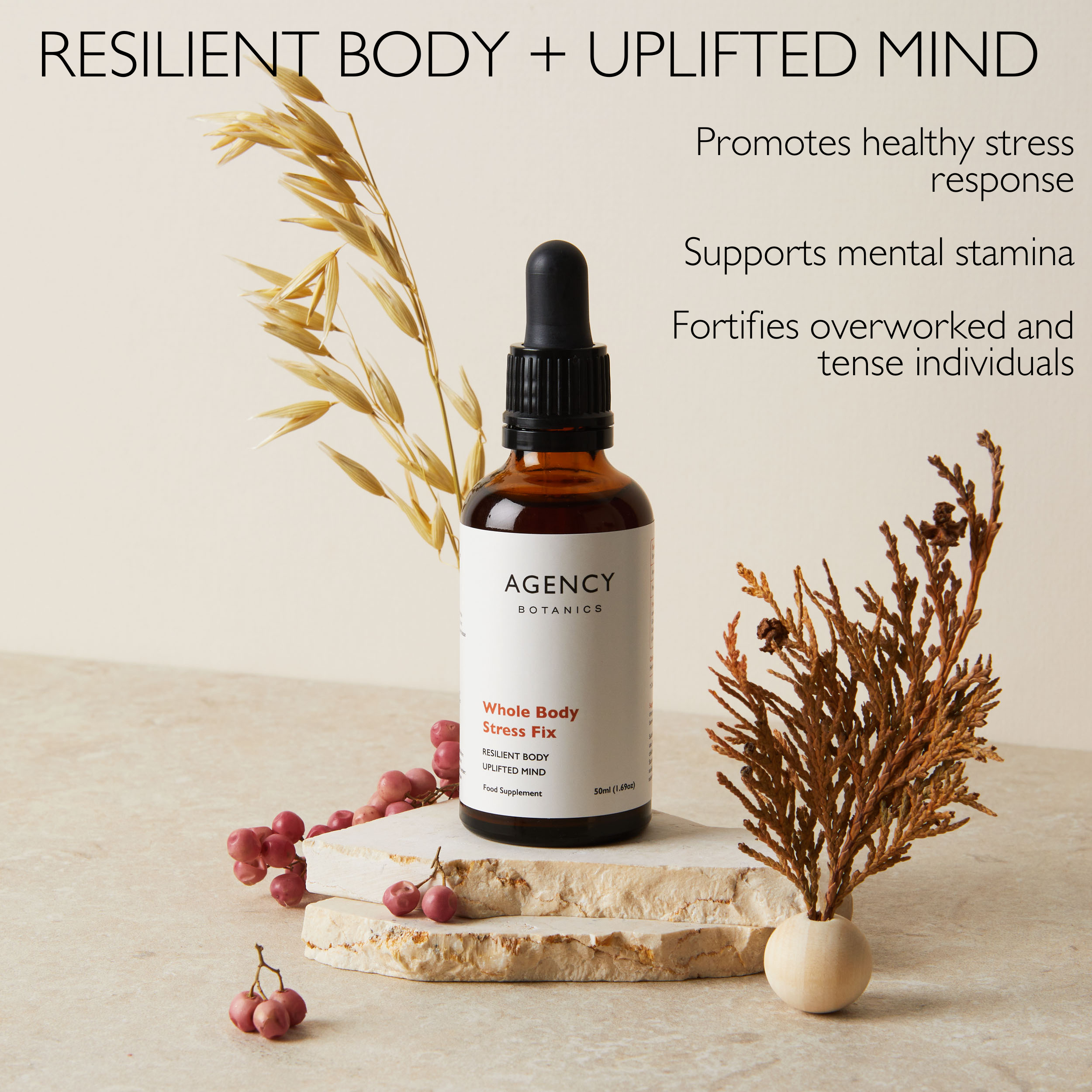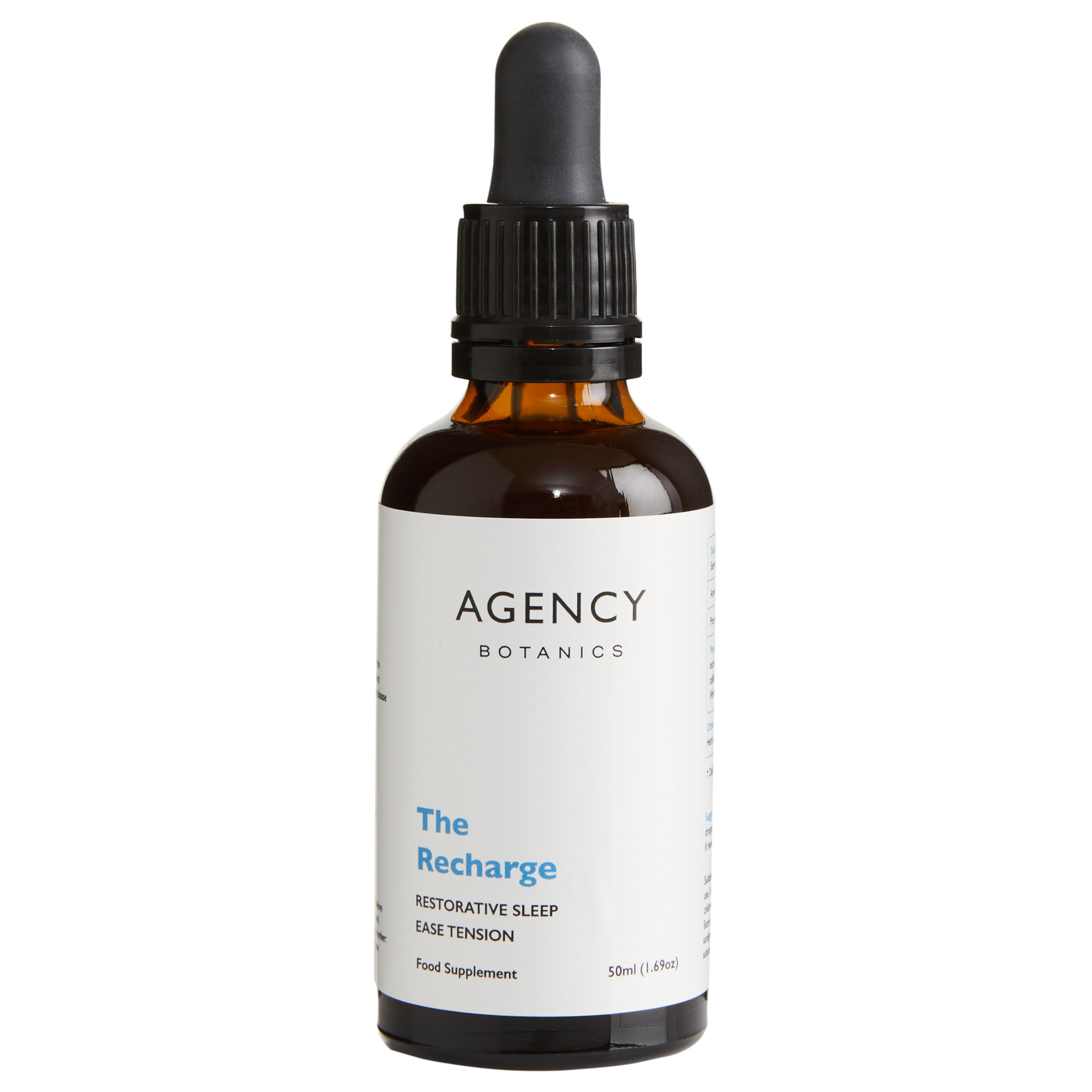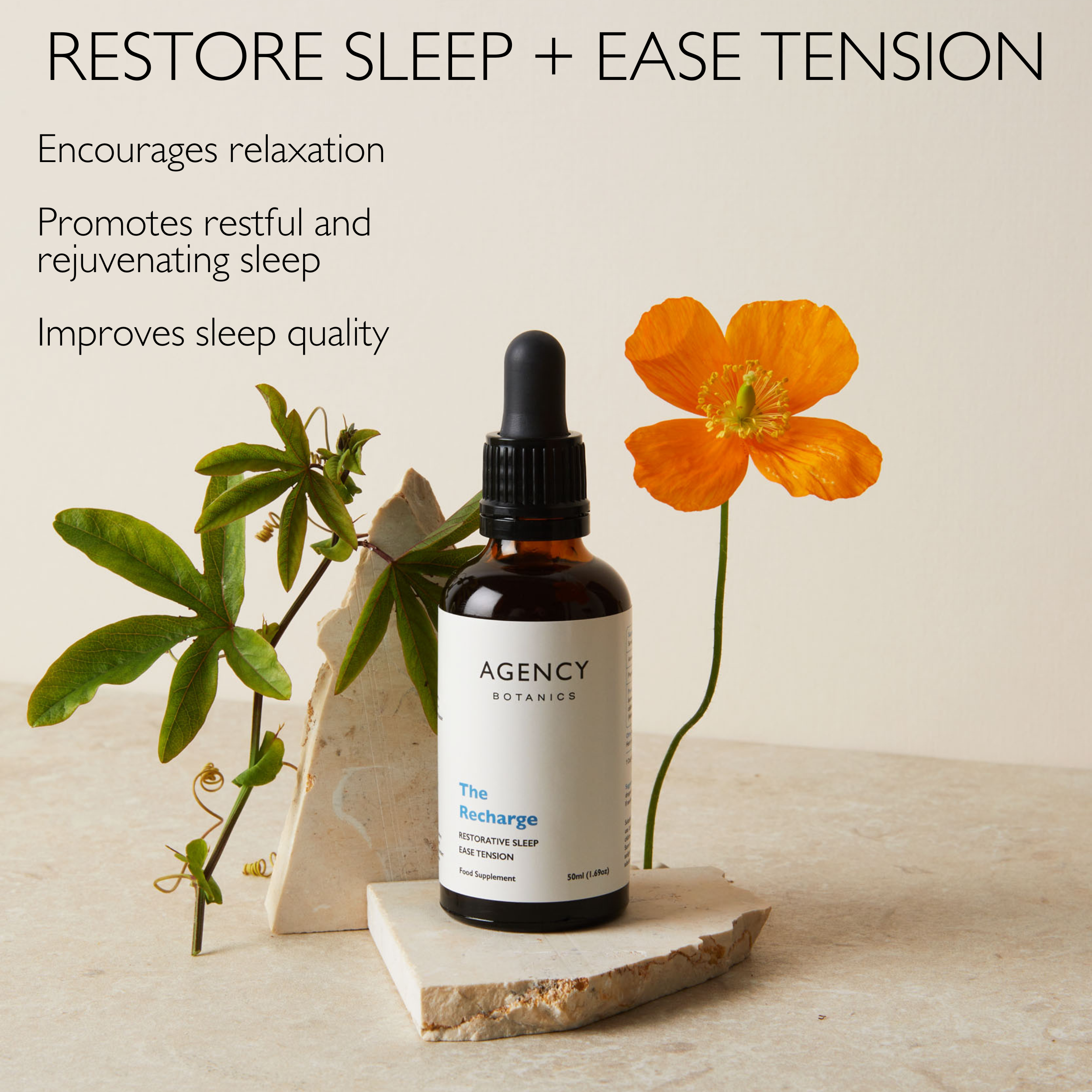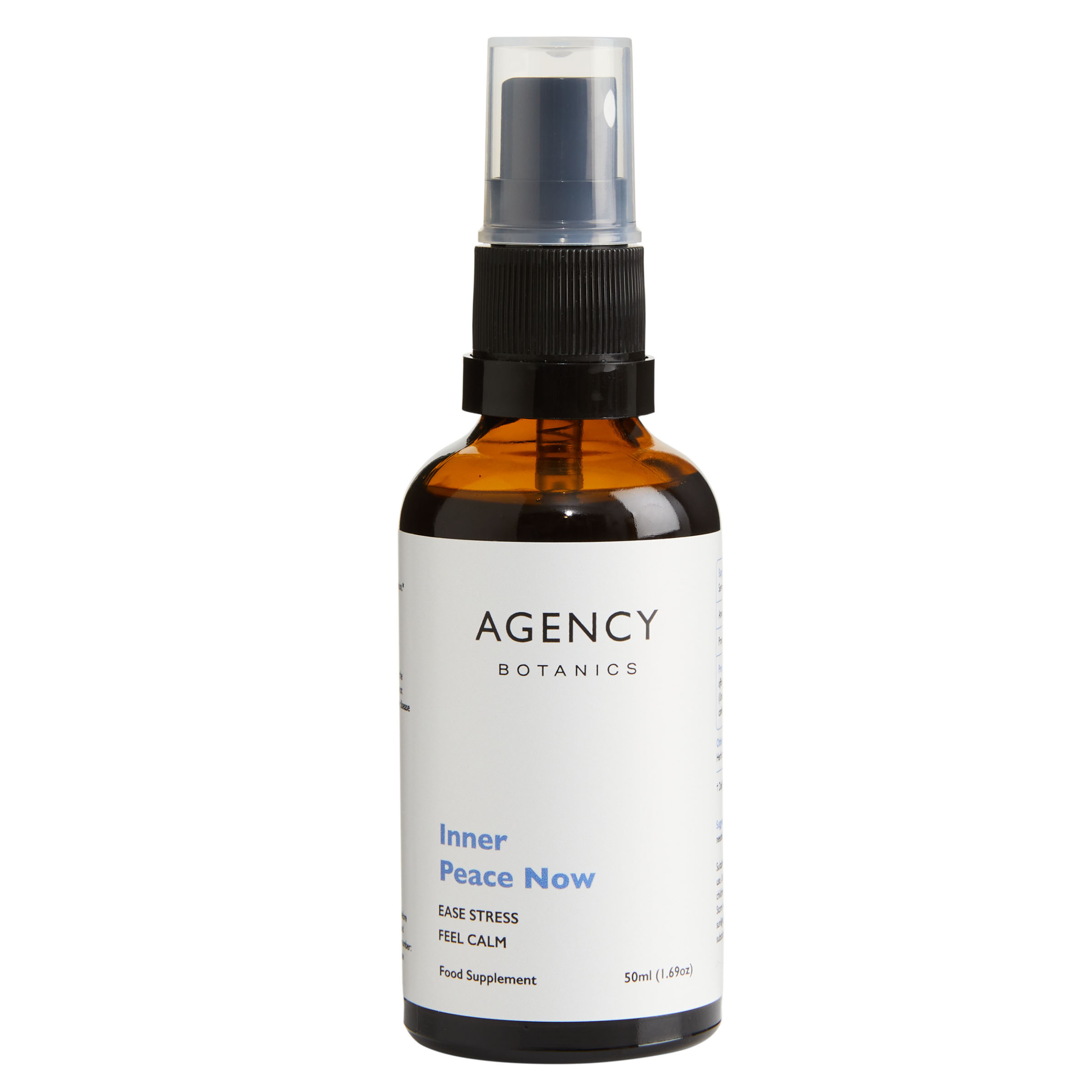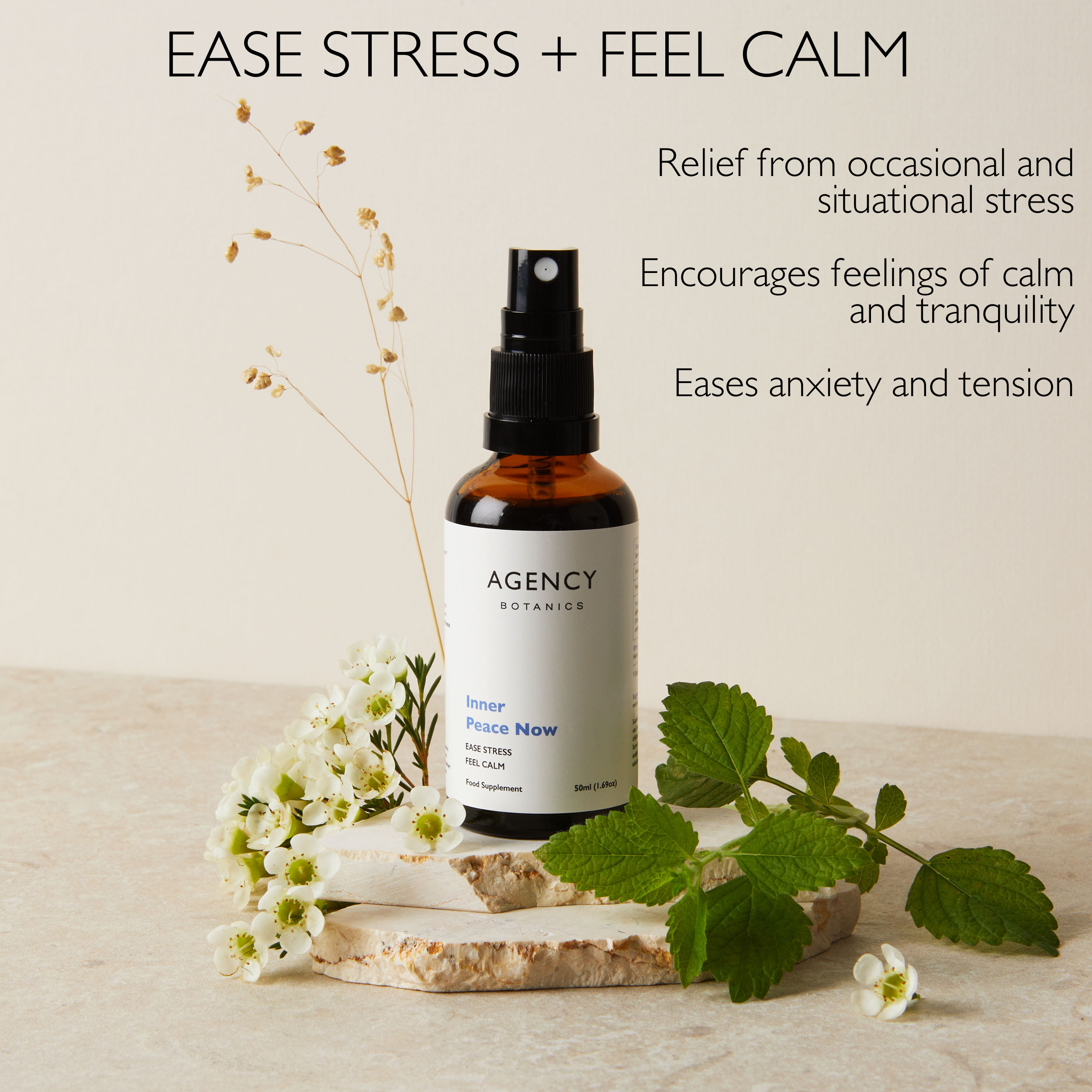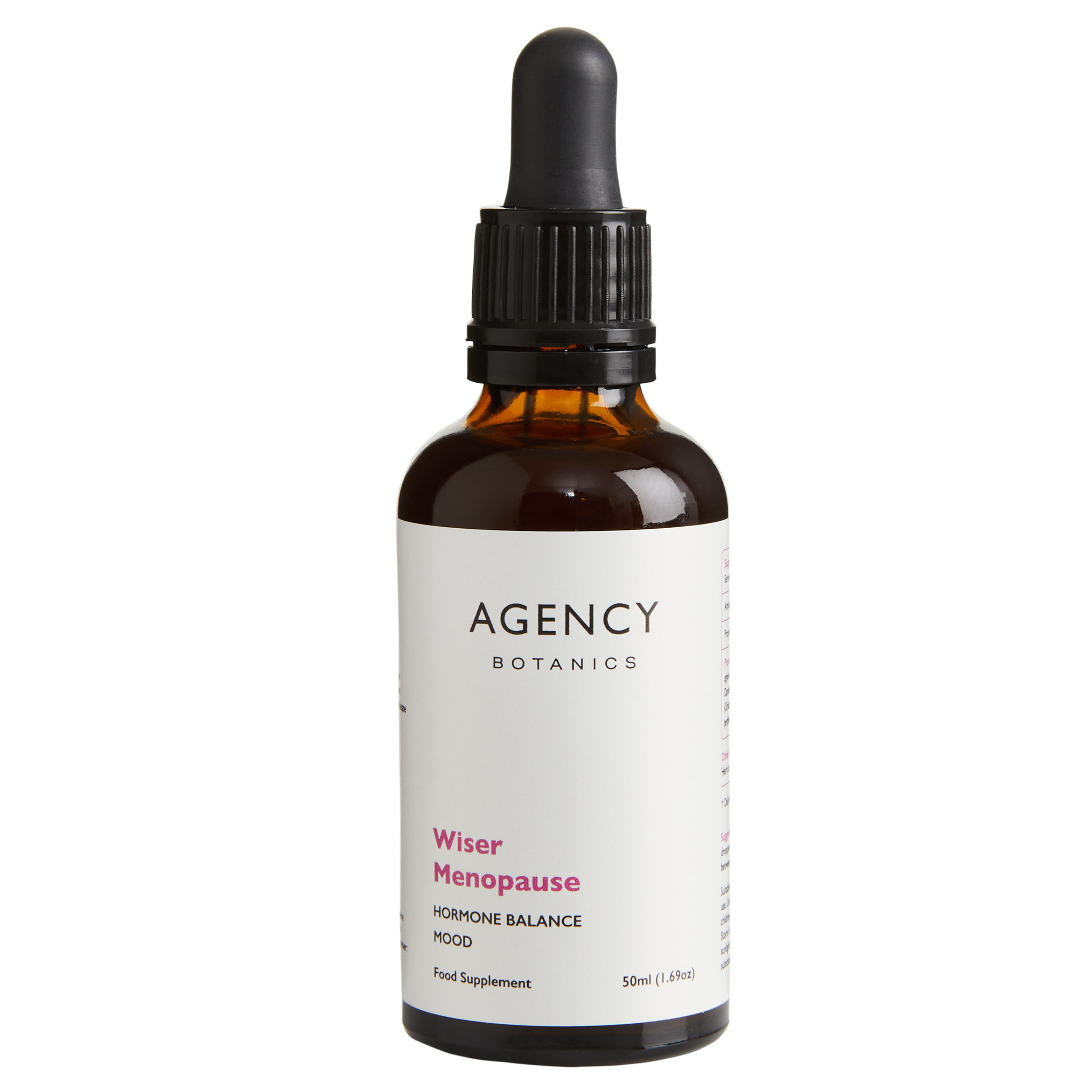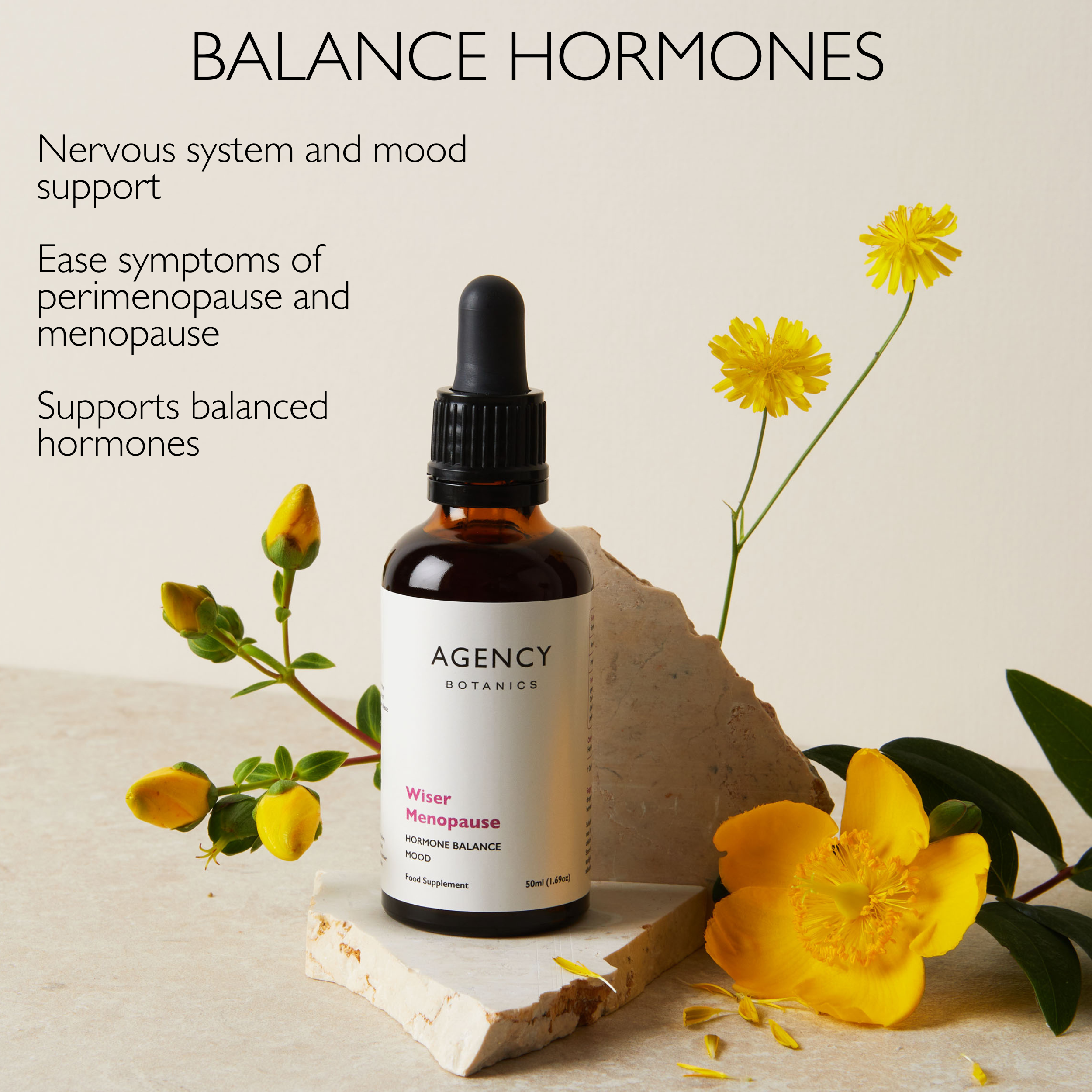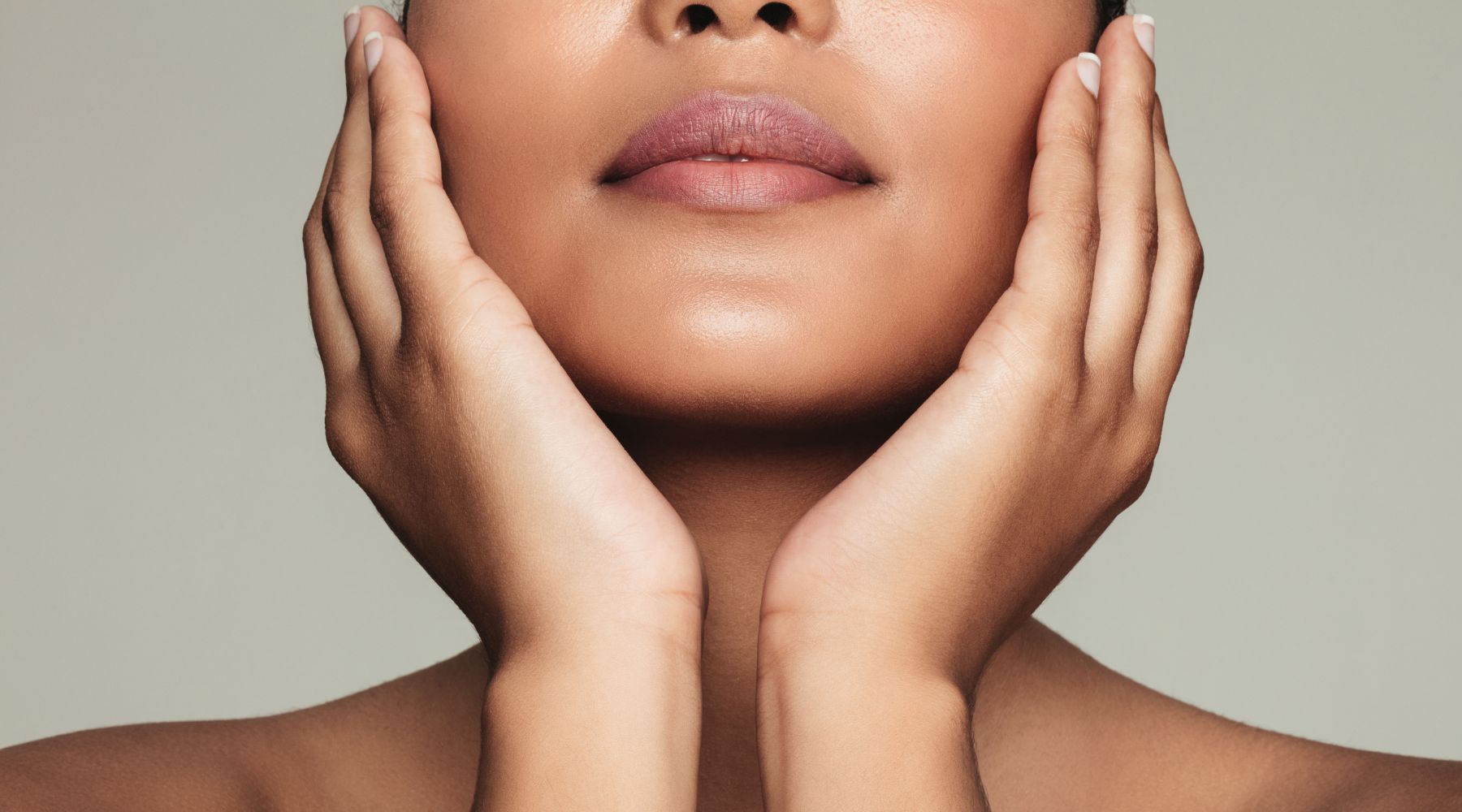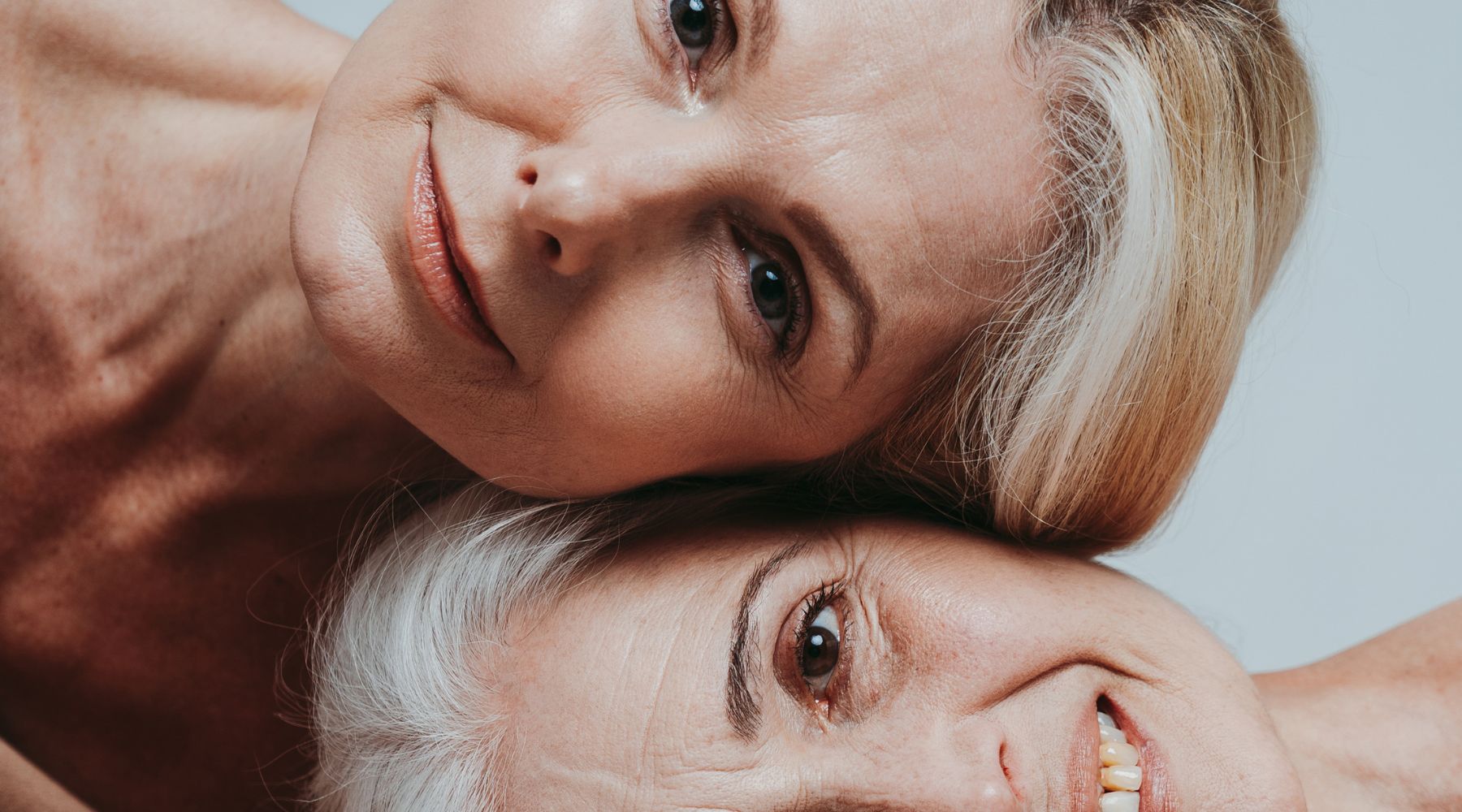
How Skin Changes During Menopause
The skin during menopause
Estrogen plays a critical role in keeping skin bouncy, youthful and line free. It’s absolutely key for collagen production, elasticity, thickness, and moisture levels. As estrogen levels fall, the skin becomes prone to thinning, sagging, and wrinkles. Additionally, women lose collagen at a rate of 3% a year after age 30 and this accelerates in menopause. Reduced skin elasticity also becomes a problem as the skin loses elastin.
Hormonal changes also affect the skin barrier. It becomes fragile and easily compromised, making the skin more susceptible to inflammation, irritation, and slower wound healing.
Changes in hormone levels also lead to water imbalances in the body, which can result in water retention, swollen eyes and puffiness. Yet even as we retain more water, our skin has a harder time holding onto it due to a thinning dermis and less resilient skin barrier. This results in dry skin that has a hard time staying hydrated and moisturized.
The skin gets dryer because our oil glands become less active and we produce fewer of the lipids that keep our skin healthy and glowing. Fewer natural lipids in the skin can also lead to increased sensitivity.
As we age and after the age of around 50, the pH level of our skin gets higher than the level needed for optimal functioning of the skin’s microbiome and defensive cells. When pH levels rise, the skin becomes more sensitive and prone to rashes, irritation, and inflammation because those cells can’t defend the skin as well.
Better skin in menopause: Less is more
It’s clear that the skincare products and routines that worked in our 30s may need a rethink in perimenopause. High-performance actives all have a place in perimenopausal skincare, but not at the expense of a healthy skin barrier.
A healthy skin barrier is key to retaining moisture and water. It’s crucial that your skin is well hydrated and moisturized, so that it can function properly, regenerate itself, combat inflammation, and stay less susceptible to irritation. A resilient skin barrier helps keep skin looking youthful and radiant
Common skin problems
The issue: Sun damage
During menopause the skin will show all of its sun damage. Many of us spent our teenage years sunbathing and will now see the effects of that damage with the accelerated loss of collagen and elastin.
The Solution:
Don’t shun the sun, be smart about it. You can prevent further damage with the correct sun protection. During menopause, the skin is less able to repair sun damage, so you’ll need to wear sunscreen every day and cover up with hats and the right clothes to further protect yourself.
It’s important to note that SPF is not just for lighter-skinned women. Women with darker skin need to be just as diligent with sun protection in order to prevent damage from UV rays as well as hyperpigmentation.
The issue: dryness
Dryness is a sign that your skin’s barrier isn’t functioning optimally. During menopause, the skin’s barrier thins and has a harder time holding onto water. Oil glands become less active and the skin becomes less moisturized. You might feel that no matter what you put on your skin, it feels dry.
The solution:
The first step is to stop stripping your skin of its natural protective oils. Use a mild oil-based or gel cleanser. Oil cleaners can be incredibly useful here, because they remove all the makeup, grime and sunscreen without compromising your barrier.
Humectants are also very important, because they help hold water to the skin. Looks for products that contain game-changing ingredients like hyaluronic acid, aloe, and glycerin.
The issue: Dullness
Aging causes skin cells to turn over at a lower rate, this can often make skin look dull and lackluster.
The solution:
Alpha hydroxy acids (AHAs) and fruit enzymes from hibiscus, papaya, and pineapple can be really useful here, because they help to slough off dead skin cells to reveal brighter and luminous skin.
For those with sensitive skin who can’t tolerate AHAs, fruit enzymes are a gentle alternative. A gentle, at-home peel a couple times a week, can also help to remove dead skin cells and allow products to penetrate the skin more easily.
The issue: Fine lines and wrinkles
Fine lines and wrinkles are caused by a breakdown of collagen and elastin. As these fibers break down, skin loses its strength and elasticity.
The solution:
The solution here is two-fold: treatment and prevention. Start with prevention, it's always easier to prevent rather than treat. SPF is the first line of defense, because UV light breaks collagen down at a faster rate than normal aging. Antioxidants like vitamin C, E, CoQ10 and many phytonutrients are also important for protecting skin cells and preventing the breakdown of collagen. Use antioxidant serums during the day.
Topical retinoids (vitamin A) are the gold standard ingredient for stimulating collagen. Retinoids can be drying to the skin, so the skin must be well hydrated. Use retinoids at night and always an SPF during the day.
The issue: Acne
Due to declining estrogen levels, the ratio of female-to-male hormones changes and male hormones (androgens) go up and are one of the main causes of acne.
The solution:
The regular use of retinoids. The regular use of omega-3 fatty acids such as fish oils, flax and hemp seeds, and an anti-inflammatory diet can also help.
Menopause can feel like a whirlwind of changes, both internally and on your skin. But take a deep breath and focus on what you can control. By simplifying your routine and prioritizing barrier health, you can keep your skin glowing. Think gentle cleansers, hydrating serums, and antioxidant moisturizers. Retinol can be your nighttime friend, but remember to be kind to your skin and use SPF daily. Embrace this time as a chance to create a new, stress-free skincare ritual that works for you. Celebrate perimenopause as a chance to discover a new, radiant you. After all, true beauty knows no age.
Blog disclaimer: Agency Botanics and its materials are not intended to treat, diagnose, cure or prevent any disease. All materials on Agency Botanics are provided for educational purposes only. Always seek the advice of your physician or another qualified healthcare provider for any questions regarding a medical condition, and before undertaking any diet, exercise, or other health-related programs.

